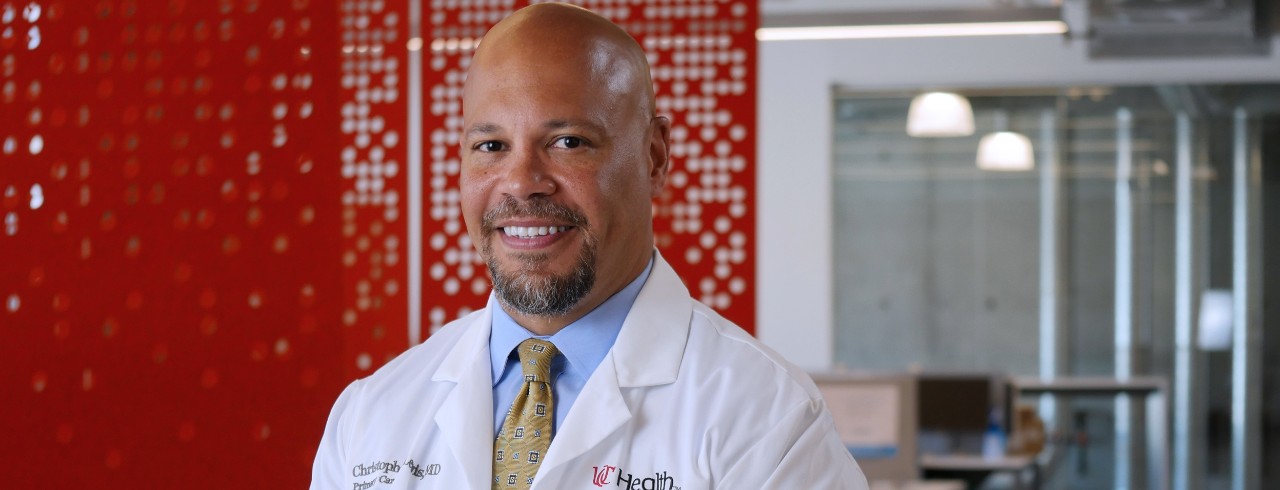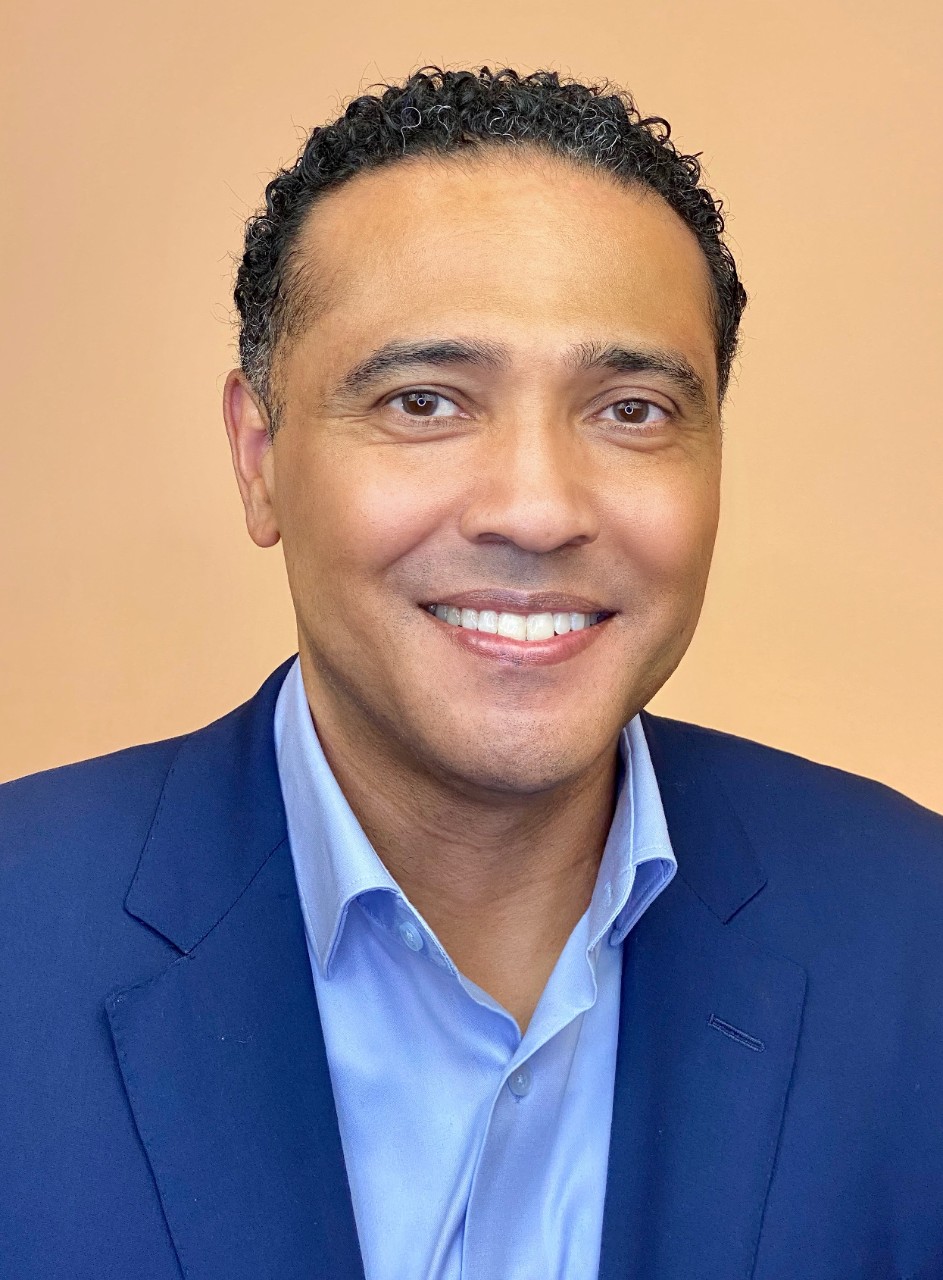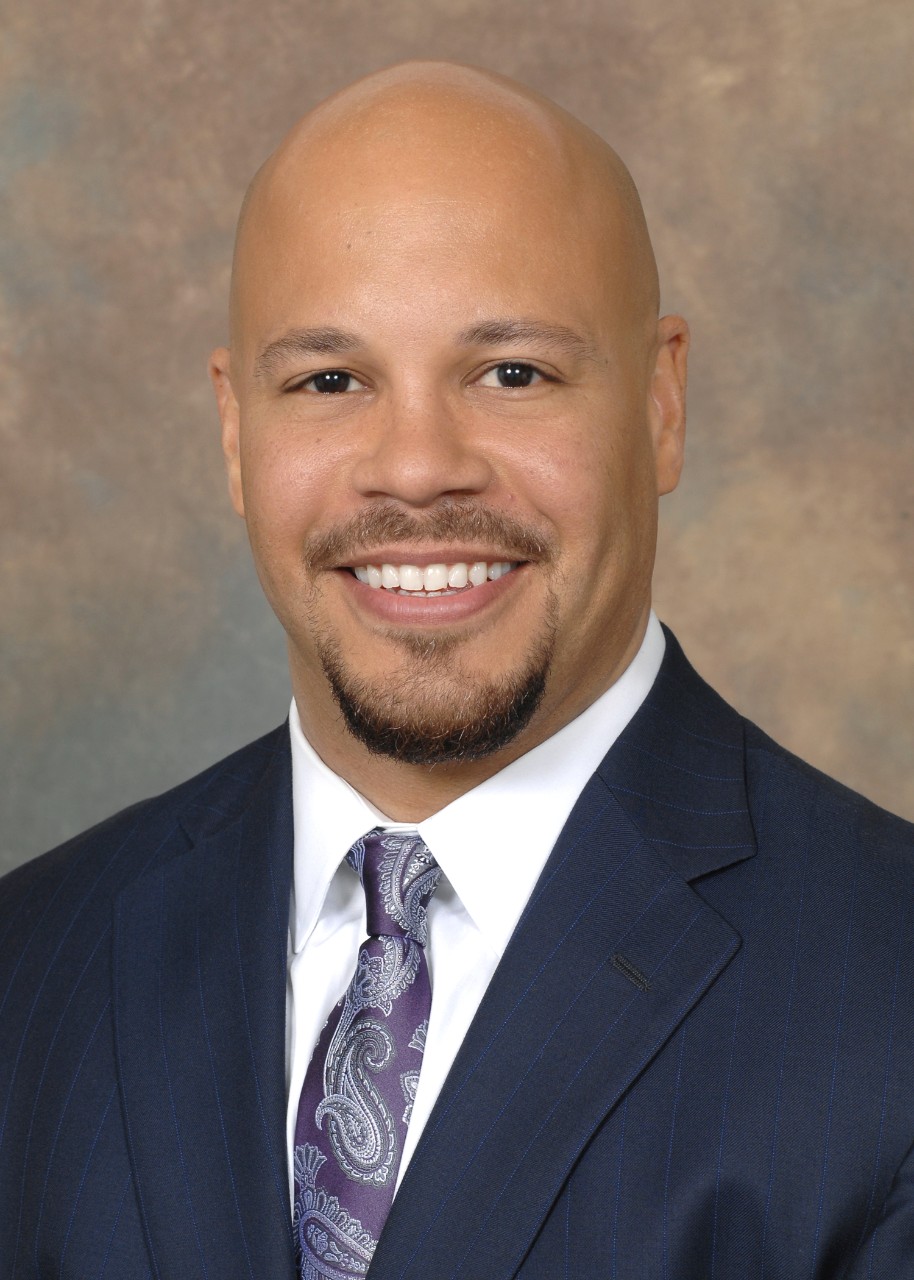
UC startup makes health care more convenient, equitable
TeleSMART Health develops platform for remote medical examinations
A University of Cincinnati Venture Lab-backed startup is seeking to make health care more convenient and more equitable with a telehealth platform that enables doctors to perform remote comprehensive physical examinations with patients.
The startup, TeleSMART Health, offers customized patient kits with a variety of medical tools, a clinician app and a web portal, which allow doctors to examine patients and collect objective data to inform their medical decision making. TeleSMART Health helps doctors remotely perform physical examinations on patients, such as listening to their hearts and lungs, which greatly improves their ability to provide care.
“It’s quite remarkable how many medical decisions are being made without a physical exam these days because of the pandemic,” said Christopher Lewis, MD, TeleSMART Health’s chief medical officer. “But our theory is that even after the pandemic, the convenience, the access, the health equity factors will make this sort of technology stick around.”

TeleSMART Health patient kit
UC’s Venture Lab, operated by the Office of Innovation, provides a launch pad for entrepreneurs to turn their ideas into a startup reality. The UC Venture lab is located in the 1819 Innovation Hub in the Cincinnati Innovation District, providing a connection point to talent, support and funding to help launch new companies.
“It makes a guy like me who never thought I’d be involved in a startup, all of a sudden, I have the tools and the training that I need at the tip of my fingers here at our university,” Lewis said. I never thought I’d be involved in a startup, and here I am a couple years in and still having fun and still learning from the folks at 1819.”
The Venture Lab pre-accelerator program is available for free to all members of the university community. The program provides guidance to launching a startup and pairs aspiring entrepreneurs with executives for mentoring.
“Digital transformation is impacting every industry, and health care is no exception,” said David J. Adams, UC’s chief innovation officer. “The connected ecosystem of the Cincinnati Innovation District empowers researchers to take their ideas forward, solve complex problems with new and novel solutions and provide accelerated paths to commercialization.”

Tchad Robinson
The idea for TeleSMART Health arose in the early days of the COVID-19 pandemic during a conversation between Lewis and one of his friends from college, Tchad Robinson, who now is the startup’s CEO. Frustrated by the challenges of receiving medical care in the spring of 2020, their complaints soon evolved into a conversation about an opportunity to meet the needs of the health care system.
“Our value added is serving as a platform,” Robinson said. “It’s a digital health platform that can integrate different devices into a kit so that it’s very easy for a user, which could be a patient at their home or a patient in a skilled nursing facility with the help of a nurse.”
Lewis, who also is a physician for UC Health, vice provost for academic programs at UC and a professor of family medicine at the UC College of Medicine, sees numerous potential benefits provided by telehealth.
“There’s tons of applications for this, and many of them are aligned with that intentionality of health equity and access to health care,” he said.

Christopher Lewis
Lewis envisions telehealth being a vital lifeline to patients in rural areas who may lack access to medical care nearby, especially from specialists. For example, instead of driving two hours to see a cardiologist, a patient could have a remote visit from their home or a nearby facility.
For patients who recently received an organ transplant, telehealth appointments could reduce the need to visit a doctor’s office multiple times a week. People who can’t make frequent trips to their doctor often aren’t deemed viable candidates for organ transplants, Robinson said, so telehealth could make care more equitable.
Virtual visits also could reduce the number of emergency room visits by nursing home residents at times when an attending physician isn’t present.
“There’s health and safety factors as well,” Lewis said. “In the middle of flu season, do you really want to take your 90-year-old grandmother and sit her in a crowded doctor’s office with people coughing and sneezing all over? Probably not if the appointment is something that can be done over telehealth.”
It makes a guy like me who never thought I’d be involved in a startup, all of a sudden, I have the tools and the training that I need at the tip of my fingers here at our university.
Christopher Lewis TeleSMART Health’s chief medical officer
When Robinson and Lewis began researching their business idea, they discovered the tools required to perform physical examinations via telehealth already were available. However, the companies that created the tools weren’t offering the technology to most doctors nor was there an easy way to integrate technology from multiple manufacturers.
“Nobody was really putting the equipment in the hands of physicians to take care of their own patients,” Lewis said. “The couple of folks out there doing this sort of thing were farming out their services using their clinicians, not empowering existing clinicians to take care of their own patients.”
Utilizing the existing products, TeleSMART Health was able to use its own software and technical know-how to connect the equipment with electronic health records.
“We want to be more equipment agnostic,” Robinson said. “Our skill set is the interface, the platform that hosts the interface with the patient and the doctor.”
Andrew Jajack, who received his doctorate from the Department of Biomedical Engineering at UC, developed the TeleSMART Health software.
It’s a digital health platform that can integrate different devices into a kit so that it’s very easy for a user, which could be a patient at their home or a patient in a skilled nursing facility with the help of a nurse.
Tchad Robinson TeleSMART Health’s CEO
TeleSMART Health will begin testing its software this year with the UC College of Nursing.
“We want to make sure we work any kinks out, any bugs out, to make sure it’s usable for non-tech-savvy patients,” Robinson said.
While there always will be usefulness in face-to-face visits, Lewis said, he expects telehealth to continue to grow.
“I think there are some aspects of medicine that when telehealth arrives, it’s not going anywhere and will likely replace a lot of the face-to-face visits,” Lewis said. “I don’t think you’re going to be able to get surgery through telehealth anytime soon, but outside of that it has the potential to be impactful in virtually every other aspect of medicine.”
Featured image at top: Christopher Lewis, TeleSMART Health’s chief medical officer, at the 1819 Innovation Hub. Photo by Gregory Glevicky/UC Office of Innovation. All others provided.
About UC Venture Lab
A leading model for urban-centered universities, the UC Venture Lab activates a high density of rapidly curated startup opportunities that attract outside entrepreneurial talent and investors. We connect university students, faculty, staff, and alumni to talent and funding to help launch new companies. Our team includes Office of Innovation staff as well as Entrepreneurs-in-Residence (EIRs), coaches, curated service providers, and subject matter experts.
About the Cincinnati Innovation District
The Cincinnati Innovation District® is a unique and thriving ecosystem that attracts, produces, retains and develops talent by co-locating and collaborating with organizations. Unveiled in 2020 by Ohio Governor Mike DeWine and Lt. Governor Jon Husted along with JobsOhio and innovation district leadership, the district envelops myriad innovation assets and access to some of the world’s leading academic and research centers, organizations and talent pools. Powered by the University of Cincinnati, the CID includes the world-renowned Cincinnati Children’s Hospital Medical Center and other national research centers. The district’s mission is to become a globally recognized talent hub and lead a transformational movement. The combination of industry engagement, unique experiential platforms and accessible research expertise — working at the pace of change — will become a model nationwide. For more information on the Cincinnati Innovation District, visit www.cincyid.com.
Related Stories
Before the medals: The science behind training for freezing mountain air
February 19, 2026
From freezing temperatures to thin mountain air, University of Cincinnati exercise physiologist Christopher Kotarsky, PhD, explained how cold and altitude impact Olympic performance in a recent WLWT-TV/Ch. 5 news report.
Discovery Amplified expands research, teaching support across A&S
February 19, 2026
The College of Arts & Sciences is investing in a bold new vision for research, teaching and creative activity through Discovery Amplified. This initiative was launched through the Dean’s Office in August 2024, and is expanding its role as a central hub for scholarly activity and research support within the Arts & Sciences (A&S) community. Designed to serve faculty, students, and staff, the initiative aims to strengthen research productivity, foster collaboration, and enhance teaching innovation. Discovery Amplified was created to help scholars define and pursue academic goals while increasing the reach and impact of A&S research and training programs locally and globally. The unit provides tailored guidance, connects collaborators, and supports strategic partnerships that promote innovation across disciplines.
Blood Cancer Healing Center realizes vision of comprehensive care
February 19, 2026
With the opening of research laboratories and the UC Osher Wellness Suite and Learning Kitchen, the University of Cincinnati Cancer Center’s Blood Cancer Healing Center has brought its full mission to life as a comprehensive blood cancer hub.
